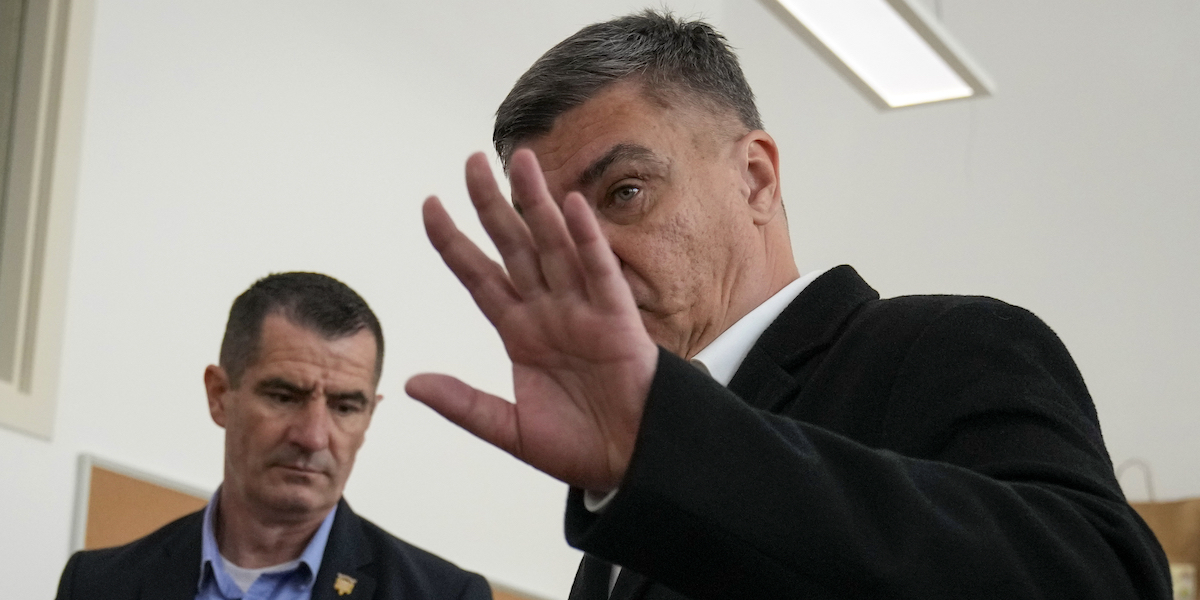Loading player
Croatia’s Constitutional Court ruled on Friday that the country’s president Zoran Milanović cannot become prime minister, a position that has greater powers under Croatian law. Elections were held in the country on Wednesday, which were won by the Croatian Democratic Union (HDZ), the centre-right party leading the outgoing government, which however did not reach a majority and is therefore negotiating with other right-wing parties to form a coalition. Milanović, on the other hand, is one of the leaders of the centre-left coalition, which came second: it was in any case unlikely that he would become prime minister, but the Court ruled out this possibility.
Despite his institutional role, Milanović participated in the electoral campaign saying that if his party won the elections he would resign as president to become prime minister. After the Constitutional Court’s ruling, Milanović rejected its conclusions, arguing that only parliament can decide who the new prime minister will be.
Croatia is a parliamentary republic in which, as in Italy, the head of government is not directly elected: citizens vote to choose parliamentarians, then the President of the Republic gives the task of forming a government to the political groups that have obtained the majority, and who must subsequently obtain the confidence of parliament. It will therefore be Milanović himself who will appoint the prime minister, after he had already dissolved the chambers early, following the requests of the opposition parties who had supported the anti-government protests linked to the corruption scandals in which the conservative government had been involved.
The HDZ won the elections, but does not have a majority in parliament, so is now in discussions with other smaller parties to try to form a governing coalition. In particular, he is negotiating with the right-wing nationalist party Patriotic Movement (DP), which came third, and the ultra-conservative Ponte party (Most). The Croatian parliament is made up of a single chamber with 151 seats and the majority is therefore set at 76: the HDZ won 60, 6 less than the current ones, DP 14 and Most 11.
Already in March the Constitutional Court had ruled on Milanović’s participation in the electoral campaign. He had said that the president had to resign before the elections in order to propose himself as the new prime minister, but he had refused to do so.
Milanović accused the Constitutional Court of siding with current Prime Minister Andrej Plenković, leader of the HDZ, but did not say how he intends to challenge the court’s ruling.
